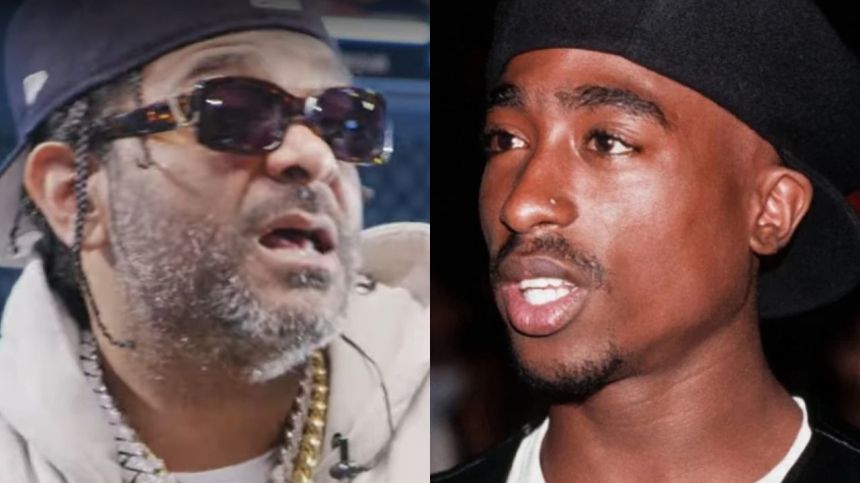Jim Jones has given props to 2Pac for giving Dipset the “marketing tool” the Harlem-bred collective needed to get success in the game.
In a roundtable interview hosted by Roc Nation that dropped on Wednesday (June 28), Capo revealed that beef was the lifeblood of the mixtape game, which gave Dipset a competitive edge over their contemporaries.
“The beef inside of Hip Hop is not a mixtape thing,” he said to roundtable host and former Roc-A-Fella Records A&R Wayne “Wayno” Clark. “It’s a Hip Hop thing. It’s a lot of n-ggas that got a lot of ego, puttin’ them in the same room, and shit is bound to happen.”
He continued: “But the mixtapes heightened a lot of situations, because now, it could be totally unfiltered. At that time in Hip Hop, we was watching 2Pac and all of them, and watching how successful they was gettin’ goin’ crazy on everybody. It was a whole era right there where this was a marketing tool that was working for major labels and artists at the time that had the upper hand.”
As Jim Jones pointed out, beef — especially on wax — is an effective marketing tool in Hip Hop, one that is still used by today’s rappers long after the days of selling mixtapes out of the trunk of their cars have come and gone.
This was a fact pointed out by Lil Durk, who claimed back in May that he was offered payment from major labels to instigate beef with other rappers, presumably to raise their profiles.
Taking to Twitter last month, Durkio made his explosive claim while emphasizing that he was “unpredictable.”
Though it wasn’t clear which recent “beef” he was referring to, it may have been a swipe at his recent ongoing (and seemingly one-sided) feud with Soulja Boy, who called him out alongside NBA YoungBoy.
“Labels try to pay me to beef I just can’t fake it I’m different I’m him unpredictable,” he wrote.
Back in 2002, The New York Times reported that beef was a big business for Hip Hop, generating a gob-smacking $1.6billion (not adjusting for inflation) a year for the industry.
The outlet further revealed that thanks to the ravenous nature of the music business, with many managers, agents, and other sundry executives taking the lion’s share of the rapper’s profits, beef was essential because it generates publicity — which translates to sales — at little to no cost for the artist.









I can’t name one crew that Dipset wiped the floor with…
I always related to the name Dipset… probably because people have callled me Dipshit my whole life. The brain acts in mysterious ways
So in other words, Cam and his sidekicks started beefs with more successful acts to sell records.
Yes bitch…
And they wonder why we have so many people being trolls and just saying things for attention.
Yep. Nigas will hate eachother and destroy each other for money. Crabs in a barrel.